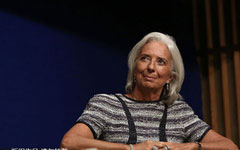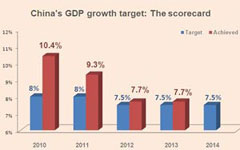Now, with the 188 members of the IMF gathered in Washington to hold its spring meeting, the question is: Will the US be able, on its own, to prevent change at the IMF? Or will change happen anyway, despite the US? Has a dramatic power shift in global affairs begun?
The idea to form the IMF immediately after World War II came from the British economist John Maynard Keynes. His view was that the IMF should be a global organization that would co-ordinate growth by managing the international monetary framework.
|
 |
 |
Today the IMF is based in Washington and is staffed with economists from around the world, but the US still controls it with an effective veto, holding 16.75 percent of the voting power, with an 85 percent voting majority required to approve important proposals and changes.
The US joined Britain as a cornerstone founder in 1945. As a result, important proposals requiring additional commitments from the US to the IMF have to be passed by the US Congress. The IMF voting structure, dating back 70 years, allows a fundamental change agreed on by all the IMF members except the US to be denied by a relatively small number of conservative US politicians. Yet, of course, the world is very different from what it was in 1945. Shouldn't the IMF's structure reflect that changed reality?
A recent article by James Roberts, an economist working at the right-wing US institution The Heritage Foundation, underlines the reasons for conservative Republicans in Congress to withhold their support for the IMF changes.
He argues that the proposals would turn the 24-person executive committee of the IMF into an elected body. At present the US has the right to appoint one member of this powerful committee. If the committee was an elected one, it is possible the US would not have any representation in the top echelons. In addition, the US now controls the allocation of $63 billion of extra funds available to the IMF for lending in a crisis, because it contributed $18 billion to this pool. The proposed change would give authority of this supplemental lending to the executive board.
The author is a visiting professor at Guanghua School of Management, Peking University. The views do not necessarily reflect those of China Daily.
